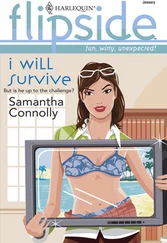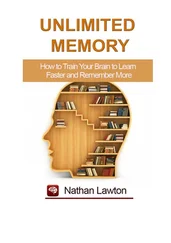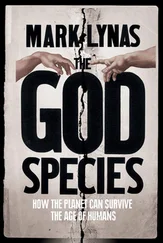One of Ginsberg’s most memorable design projects is called “pollution sensing lung tumor.” It’s a sculpture of a pair of human lungs, made entirely out of sparkling red crystals. It comes from one of Ginsberg’s scenarios for a synbio future in which the environment is full of materials made out of biological components. One material might be a pollution sensor made from thin crystalline sheets of carbon monoxide–sensing bacteria. What if some of those biological components got loose, and started spreading in the air or water supplies? These bacterial sensors might enter the lungs of a smoker, proliferating there because of all the “pollution” they discover. Suddenly, instead of a bacterial infection that gives you a cough, you’ve got an infection that builds crystal sensors in your respiratory tract. The crystalline structure Ginsberg created, which at first appears to be a pair of lungs, actually represents a tumor that has been removed from a woman’s body.
Ginsberg got the idea for this project after seeing plans for such sensors, as well as for materials like the self-healing concrete I described in chapter 18. Ultimately, her concern mirrored Anderson’s. We might create synbio organisms with the best of intentions, but end up modifying humans in ways that make them sick or “grossly broken,” as Anderson put it. At the same time, Ginsberg strongly advocated against “viewing nature as a fixed thing.” Looking out the window at the busy street, she pondered out loud: “Maybe it’s ethical to disrupt nature after all. It’s just that there are so many questions that we don’t know answers to. I don’t know whether we can ever actually think it over enough to do it well.”
Though neither Anderson nor Ginsberg could imagine humans modifying themselves successfully, science-fiction writers have no trouble imagining this at all. We already explored Octavia Butler’s vision of a transformed humanity in her novels, and she’s not the only one. The British author Paul McAuley has suggested in recent novels like The Quiet War that humans will modify themselves as they colonize the solar system. He imagines a war between the Inners, people like Ginsberg from the inner solar system who think it’s morally reprehensible to modify their germ lines, and the Outers, people who have genetically modified themselves to adapt to life on the moons of Jupiter and beyond. McAuley began his career as a botanist at Oxford, and his background as a scientist informs his work. He told me how he thinks future humans might justify doing the human genetic experiments Anderson said “nobody would go for.” It all comes down to necessity. The Outers, he told me,
developed the [genetic] tweaks during or immediately after the political crisis that forced them to flee Earth’s Moon for the Jupiter and Saturn systems; that is, the work was performed under conditions where lifeboat ethics applied. The same kind of desperation, albeit to a much lesser degree, that drives people suffering mortal illnesses to seek out experimental treatments. Do or die. This may explain the lack of social outrage, or the so-called “yuck” factor, in the Outer communities.
Ultimately, McAuley imagines that one possible reason we might start modifying ourselves will be because we have no other choice. We’re likely to die in space anyway, so we might as well try something extreme.
Kim Stanley Robinson, another science-fiction author whose work deals with how humans will modify themselves to colonize space, told me that humans will get over the “yuck” factor as soon as we have decent longevity treatments. Once synbio researchers figure out a way to prolong human life, Robinson believes, people will be willing to experiment with their germ lines to create future humans who live for hundreds of years. And once we’ve done that, the floodgates will open. We’ll see humans changing their bodies more radically. We might shrink ourselves into smaller creatures so that we consume fewer resources, or modify our DNA to repair itself after radiation damage in space.
It’s tempting to say that scientists have the right answers here, and that the science-fiction writers are just engaging in rank speculation. But scientists have a duty to deal with strictly present-day scientific knowledge, not futuristic predictions. Sometimes it takes someone who isn’t involved in the day-to-day responsibilities of scientific work to see where today’s research is truly leading.
Getting Rid of Our Bodies
Synbio intervention into evolution may strike us as morally problematic, but it’s a plausible outcome of today’s research. Still, there are many other possible ways humanity might evolve. A group at the Oxford Martin School—where we visited a group of visionary geoengineers in chapter 19—thinks the future belongs to machines. The philosophers who make up the Future of Humanity Institute reside in a set of offices loosely clumped near a meeting room full of conference tables, a wall-sized whiteboard, a coffeemaker, and boxes of slightly odd Scandinavian sweets. Their goal is to explore existential threats to humanity, or extinction-causing events, including many of the dangers we’ve already discussed in this book. But their biggest concern is the possibility that we may be wiped out by “machine superintelligence,” or artificially intelligent computers (AI) that essentially take over the world.
Nick Bostrom heads the institute, where he’s written widely cited articles about everything from human genetic enhancement to existential threats and what he calls “the intelligence explosion.” A Swedish ethicist with closely cropped hair and a perpetually serious expression, Bostrom welcomed me into a spartan office whose windows overlook the courtyard where it’s said J. R. R. Tolkien wrote The Hobbit. When I asked him about humanity’s future, he wanted to get one thing straight right away. If humanity survives, he believes, it’s inevitable that we will pass through an “intelligence explosion” during the next century or two in which we will invent machines with greater-than-human intelligence. Other thinkers have called this event the “Singularity.” These machines will either wipe us out or help us create a future so unlike the present that we can hardly imagine it. But why is it inevitable that we’ll invent AI? “It’s one of those technologies that it’s hard to refrain from developing if we can,” he said. “All the steps up to it have obvious uses. We want better search algorithms, better recommendations from Amazon, and automatic fraud detection. We also want to understand the human brain, for both scientific and medical reasons. It seems hard to imagine how that would stop short of a global cataclysmic event.”
What Bostrom and his colleagues predict is that at some point humans will put together an advanced knowledge of the human brain with the “smart” algorithms that already power services like Google and predictive programs like the ones we’ve seen modeling epidemics and natural disasters. The result, he believes, will be a machine like a human brain with the processing power and memory of an enormous cluster of computers.
Imagine a brain that could process nearly unlimited information and use it to predict possible outcomes to problems and advance scientific knowledge. If such a thing existed, it would dramatically transform humanity—and our relationship to outer space. Bostom put it to me this way. Given that humans are the apex species on the planet due to intelligence, it seems likely that if we invented something with superhuman intelligence it would best us. The question is how, exactly, this besting would occur. Would it become our friendly intellectual older sibling, helping humans to stop pandemics, design the perfect space elevator, and gain superintelligence of our own? Or would it consider humans a bother, the way we do ants? In the latter case, it’s possible the machine’s “fatal indifference” to humanity would end our species forever. It might just kill us accidentally, as it went about its incomprehensibly advanced business.
Читать дальше
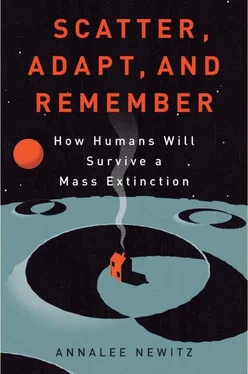

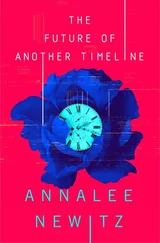



![Аннали Ньюиц - Автономность [litres]](/books/424681/annali-nyuic-avtonomnost-litres-thumb.webp)
